I Spent Years Perfecting My Rota of Make-up Brushes and Nothing Compares to This Line-up
All the best makeup brushes, tried & tested
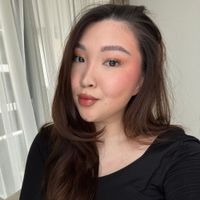
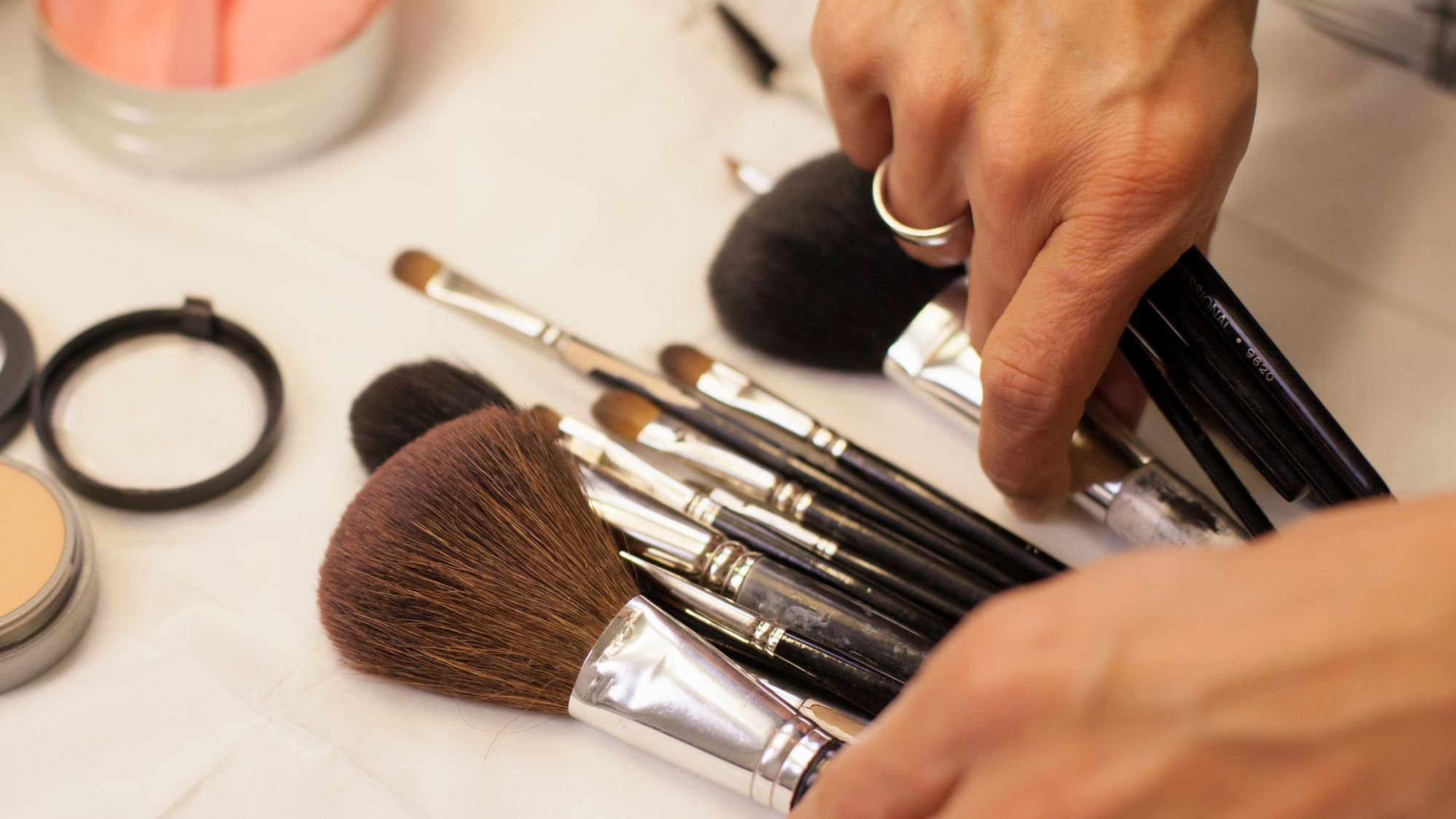
If there's one thing I've learnt about nailing your makeup routine, it's that your choice of tools can make or break your look. Trust me: having the best formulas can only get you so far, but getting your hands on an impressive set of makeup brushes can take your look to new heights—ensuring even application and a smooth blend.
As a beauty journalist, I've spent no less than the last half a decade trying to perfect my makeup brush line-up, and through years of trial-and-error, dare I say, I might have finally done it. What's notable is that ever since I found the brush for every step, my routine has never been the same. Gone are the days when I dealt with brushes that would shed, leave streaks or result in a patchy blend.
Today, I consider my roster unbeatable. Of course, getting to quiz the best MUAs in the biz certainly helped too, so if you too are in the process of levelling up your makeup brush game, you've come to the right place.
Whether you're looking to revamp your whole set or if you're looking to replace a particular brush, I've got you covered. Below, I've put together a definitive guide on everything there is to know about makeup brushes, based on the tips I've learnt directly from esteemed MUAs. Let's dive in.
Why is your choice of makeup brushes so important?
"Your brushes are just as important as the makeup you are applying," says pro makeup artist Vincent Ford. "The right brush helps you control the product, blend more seamlessly, and achieve a better finish."
Vincent also reiterates that when curating your go-to set of makeup brushes, the key is to "get to know your features and preferences well, so you can simplify your brush set to what works best for you."
According to makeup artist Cat Parnell, "the shape of each brush can essentially help do the work for you and guide the bristles into the desired area."
Celebrity news, beauty, fashion advice, and fascinating features, delivered straight to your inbox!
"As a makeup artist, I don’t really look at brushes in their traditional form," she shares. "Sometimes throwing out the rulebook can lead the best creativity. Each brush to me is just a tool to create a look and its shape is what I look for with whatever I’m creating."
"For example, I love to use a small powder brush as a foundation brush for a really natural finish," she adds.
A post shared by Vincent Ford (@vincentford)
A photo posted by on
How many complexion brushes do you need if you're starting from scratch?
"If you’re starting from scratch, I’d say start with about 7 to 10 essential brushes," shares Vincent.
1. A foundation brush
"If you want full coverage, go for a dense flat-top buffing brush. For a more natural, sheer finish, I like a duo-fiber or stippling brush that lightly diffuses product," he adds.
2. A concealer brush
According to Cat, you'll need at least one brush to apply concealer. "I tend to use both a flat brush and a fluffy brush for concealer application, because I like to start with the flat brush for higher coverage, and I then blend the product with the fluffy brush to smooth out the application," she says.
3. A powder brush
Vincent recommends using "a large, fluffy brush to lightly set the face. If you’re setting under the eyes or specific areas, a smaller tapered brush is more precise," he says.
4. A blush brush
When it comes to applying blush, Vincent says that "an angled blush brush or a rounded one with soft bristles works well.
"It should be flexible enough to blend but not so loosely packed so that you lose control of placement.I prefer a smaller blush brush so the placement doesn't move away from where you intend to place it," he adds.
5. A blush for bronzer
"A large flat brush, slightly larger than a blush brush is ideal. You want something soft that sweeps colour without creating stripes," he shares.
6. A contouring brush
Vincent suggests "using a brush with a more defined edge, like a narrow angled brush."
"I also like to use eyeshadow brushes to create precise contours on the nose and along the jawline," he adds.
7. A highlighting brush
"A fan brush gives a light glow, while a small tapered brush gives a more targeted pop. It depends on how strong you want your highlight," he points out.
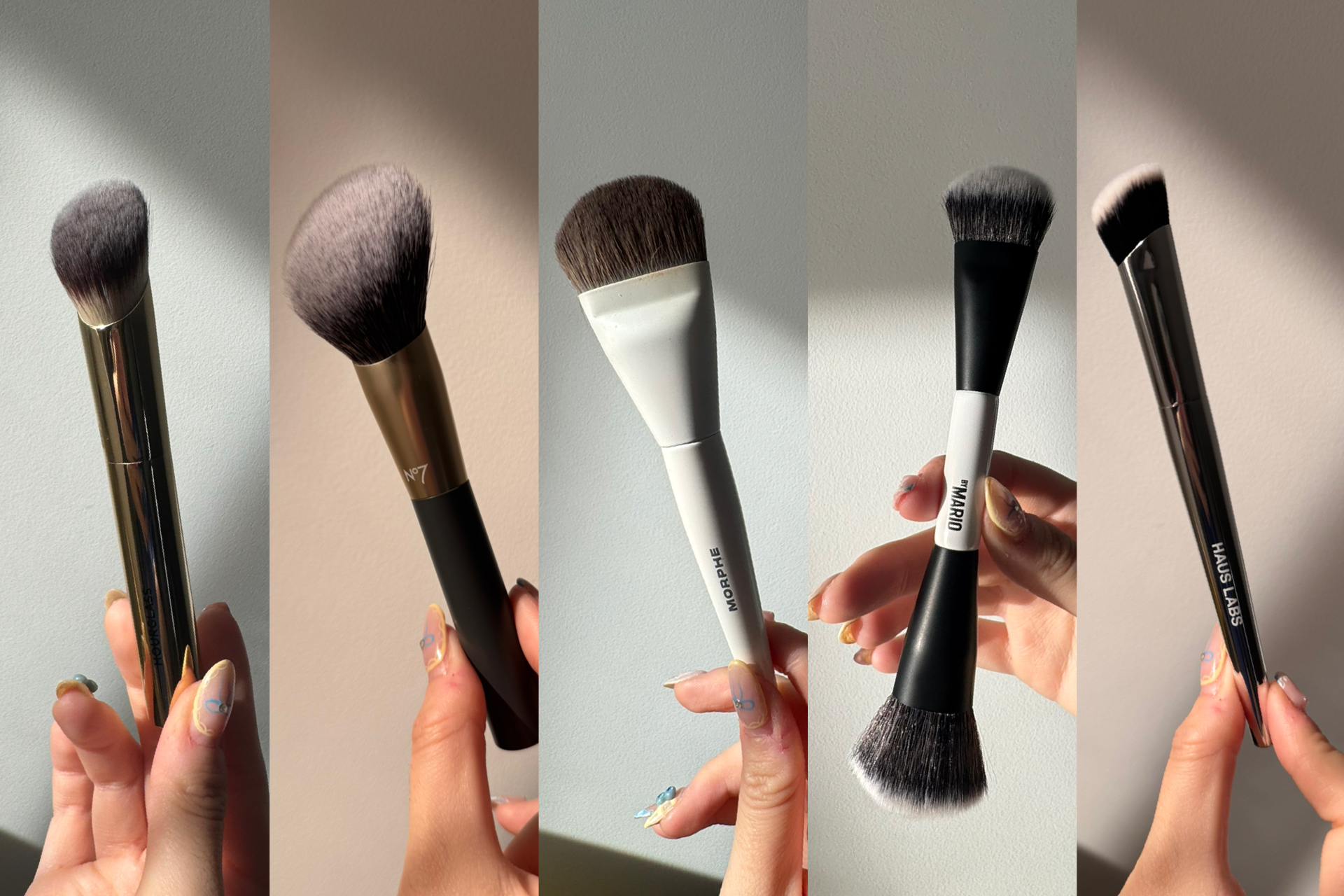
What are the most important factors to keep in mind when choosing a makeup brush?
Density
"A dense brush ensures a more intense application, i.e. the brush will deliver more of the product onto your face as it wont disappear down into the brush," shares Cat. "Dense brushes are fantastic if you want quite a full coverage look or if you want to apply bold colours and helps deliver the payoff where you want it."
Elsewhere, Vincent explains that "fluffier brushes spread product lightly and are ideal for blending or when you want a softer look."
Shape
"Each shape serves a purpose to create different effects," shares Vincent.
"In my opinion, shape the key factor when choosing the right brush for you," says Cat. "I rarely use very large brushes, I like smaller, more targeted brushes that ensure your application is in exactly the right place."
"For example, a small powder brush, no bigger than your thumb in size is perfect for me for contour, blush, highlighter and powder because we want these products saturated in only small areas of the face," she points out.
According to Cat, "an angled blush brush helps hit the contours of the face, while a fan brush allows for a fluffier application (great for blending away any excess powder)."
Material
When talking about which bristle material is better, Vincent shares that "synthetic brushes are best for creams and liquids. They’re easy to clean, don’t absorb product, and work well with liquids and creams."
Meanwhile, "natural brushes tend to be better for powders because they grip pigment well and blend effortlessly. The downside is that they require more care and aren’t always cruelty-free, which is important to consider."
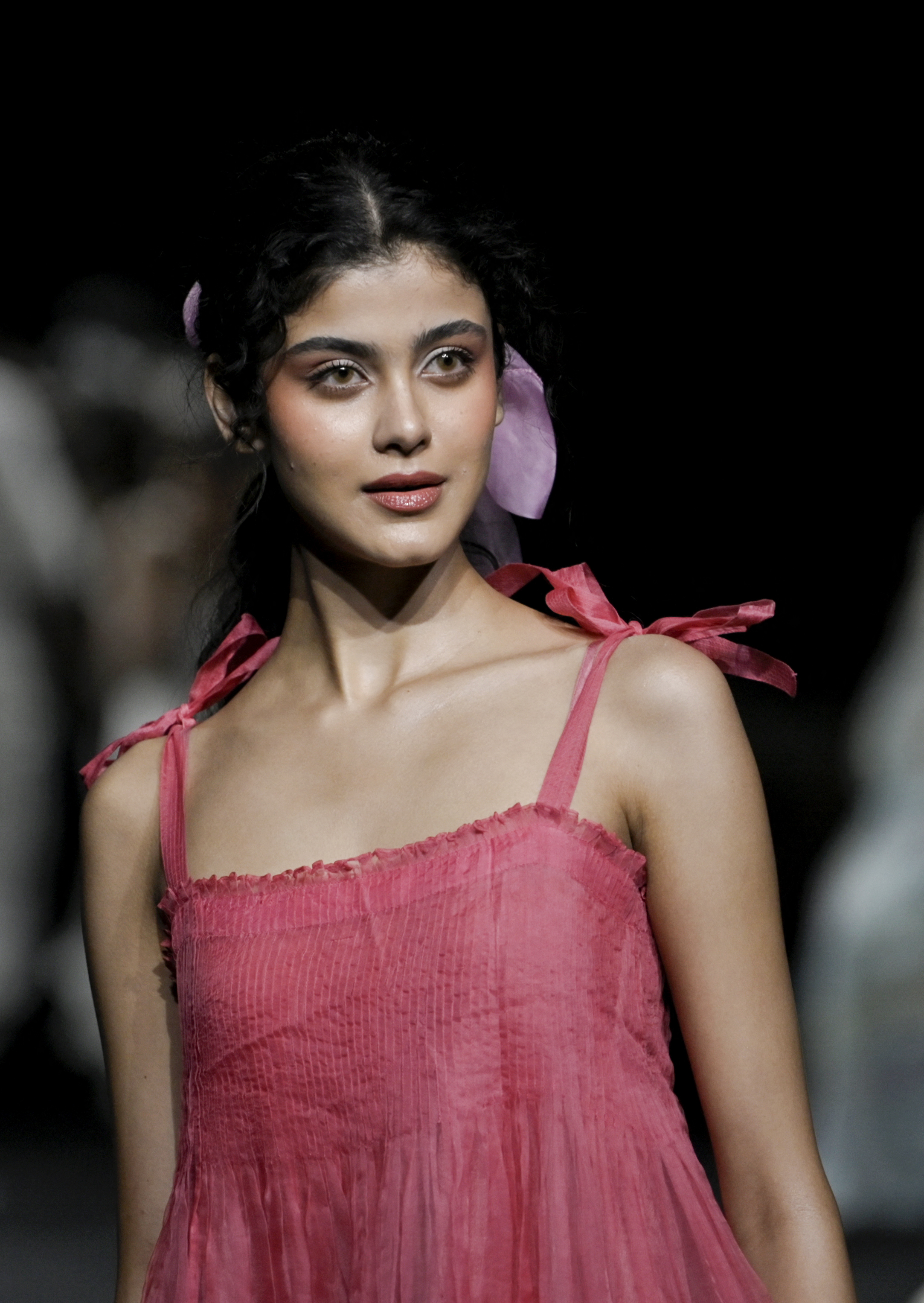
Brushes vs. makeup sponges — what is the difference?
According to Vincent, "brushes give you more control and precision."
"They don’t absorb as much product compared to a sponge, so you often use less makeup. I also find I can clean and disinfect a brush much more easily than a sponge," he adds. "Sponges are great for pressing in layers of foundation or concealers but they’re not always the best for structure and powder blending."
Meanwhile, Cat shares that "sponges often leave product sitting on the skin and don't have the same ability for placing product. In my opinion, they aren't as good as brushes."
A post shared by Cat Parnell (@catparnell)
A photo posted by on
What do I avoid when using makeup brushes?
"Avoid using one brush for multiple products without cleaning it in between," shares Vincent. "Your colours may turn muddy or you can accidentally add shimmer where you don’t want it," he explains.
"The exception is I love to use the same brush for cream bronzer, blush and even foundation to add light layers. Also stay away from brushes that feel scratchy or flimsy. If the bristles aren't soft and tightly bound you won’t get a smooth blend," he adds.
Cat recommends to stick to what works best for you. "Don't focus on the brush's named use. It may say on the brush "Powder Brush" or "Highlighter Brush", but if you feel that shape would work well for another layer of your application, then give it a go," she says.
The best makeup brushes, according to a beauty editor who tried them all
Best foundation brush
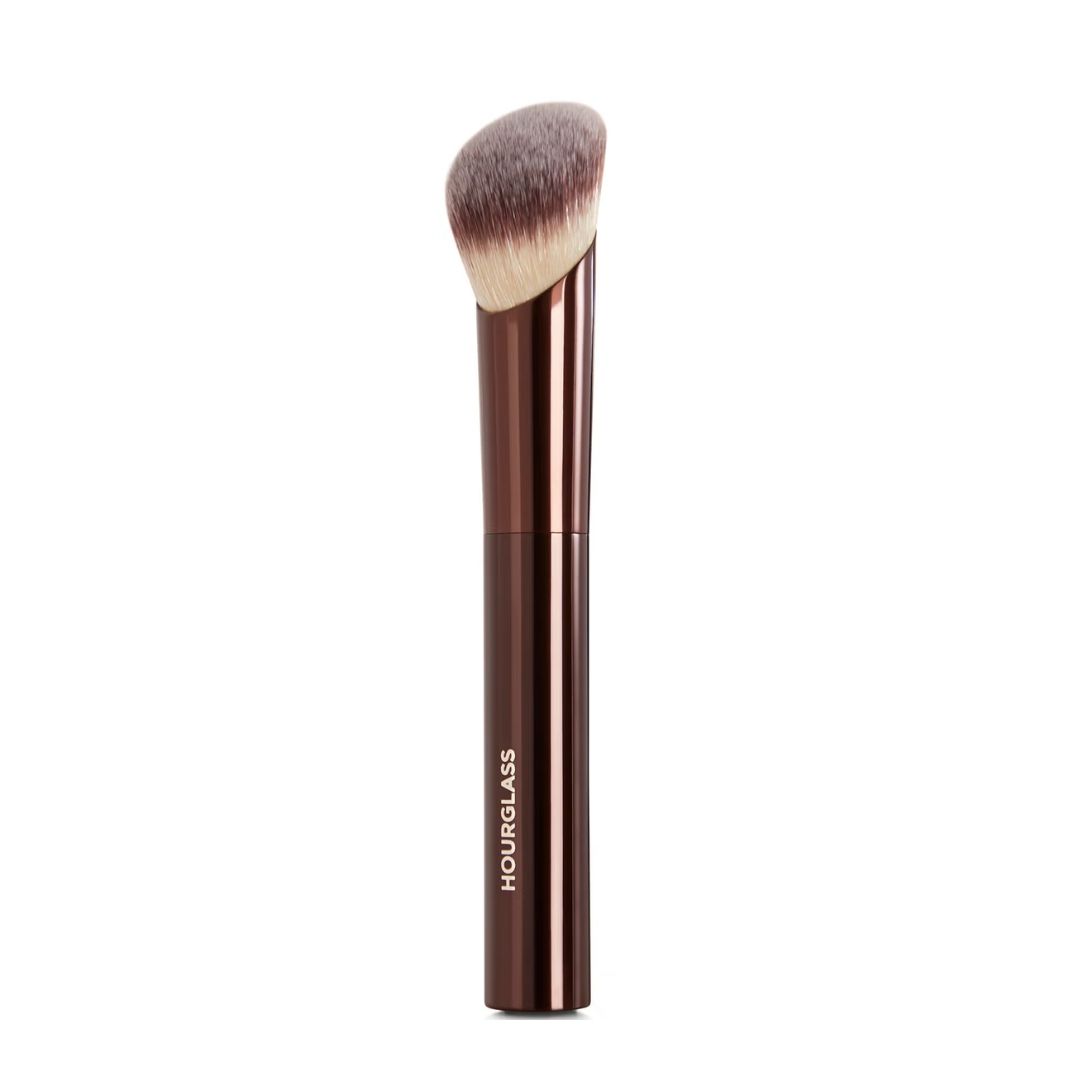
Having tried practically every foundation brush out there, I've concluded that nothing beats this one from Hourglass, which is a dense, angled brush that delivers the smoothes blend without streaks. It's been designed to mimic the precise yet delicate application control that you'd get from using the fingertips, which helps achieve a natural, skin-like finish. Although it's pricier than most brushes out there, I'm convinced that it's fully worth the investment.
Best concealer brush
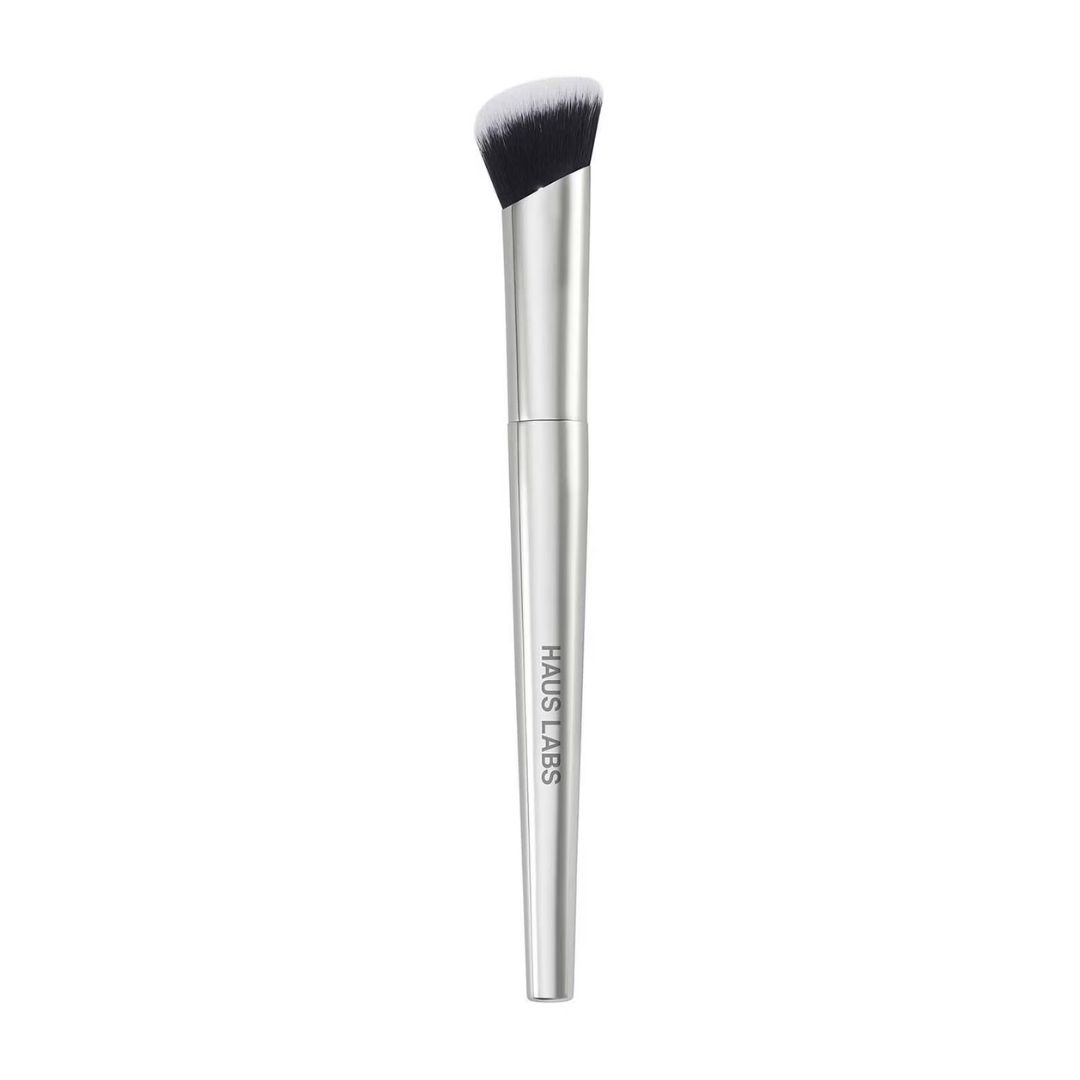
I first got my hands on this clever concealer brush about two years ago, and it hasn't left my makeup bag ever since. Featuring synthetic bristles, it has a unique domed and ever-so-slightly angled shape with a pointed tip to ensure precise application for hard-to-reach areas of the face. Above all, I love the density, which helps make sure an airbrushed finish with no streaks in sight.
Best brush for blush & bronzer
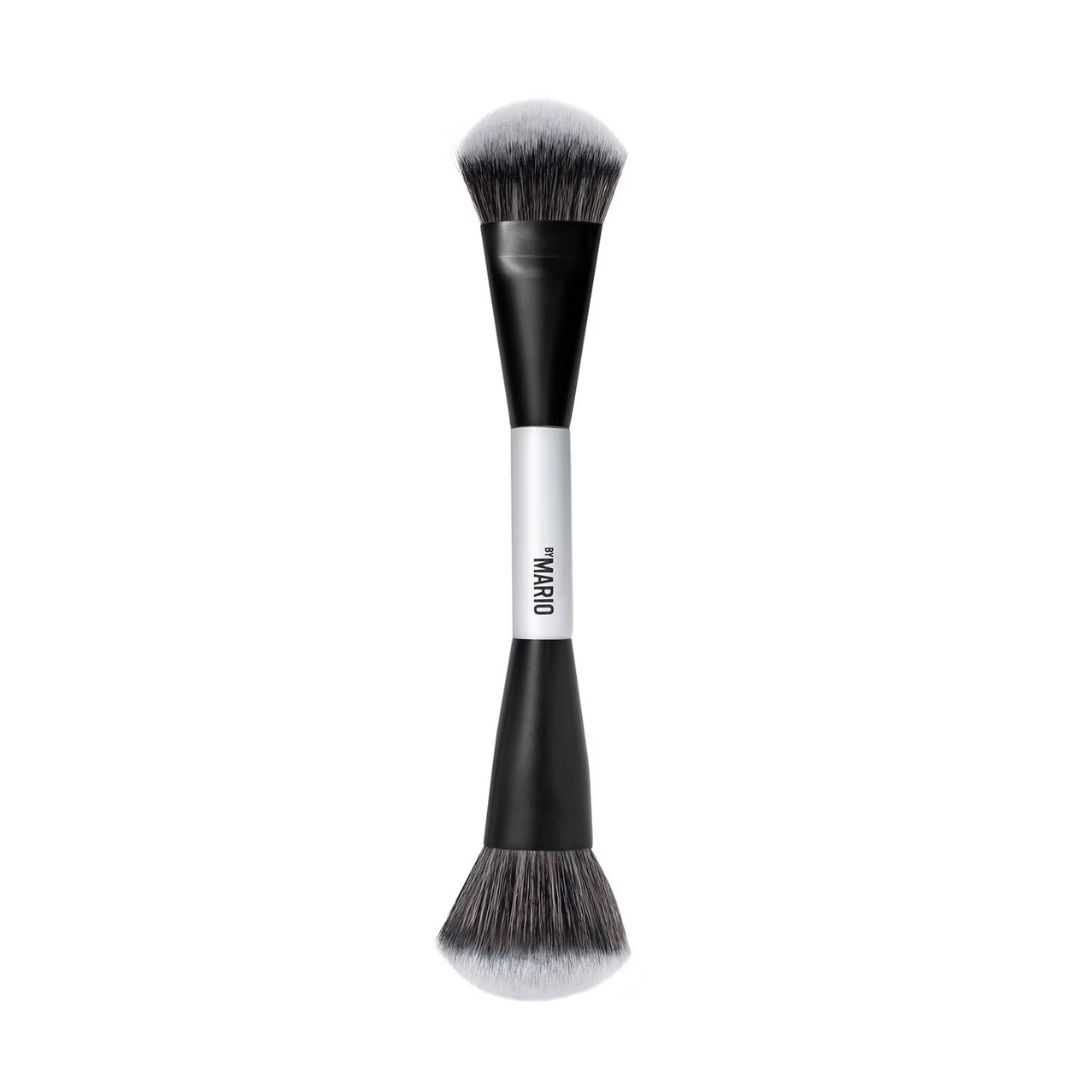
This brush is the most recent addition to my makeup routine, however, ever since I attended a masterclass hosted by Mario Dedivanovic himself (the founder of Makeup By Mario and celebrity makeup artist), I was hooked. I love that its dual ended shape makes it multi-purpose, which also saves the space in my already overflowing makeup drawer. The larger end has a unique sloped shape that seamlessly hugs the curves of the face, which I love using for bronzer. Meanwhile, the compact end of the brush allows for a more precise and controlled application, making it ideal for blush.
Best contour brushes
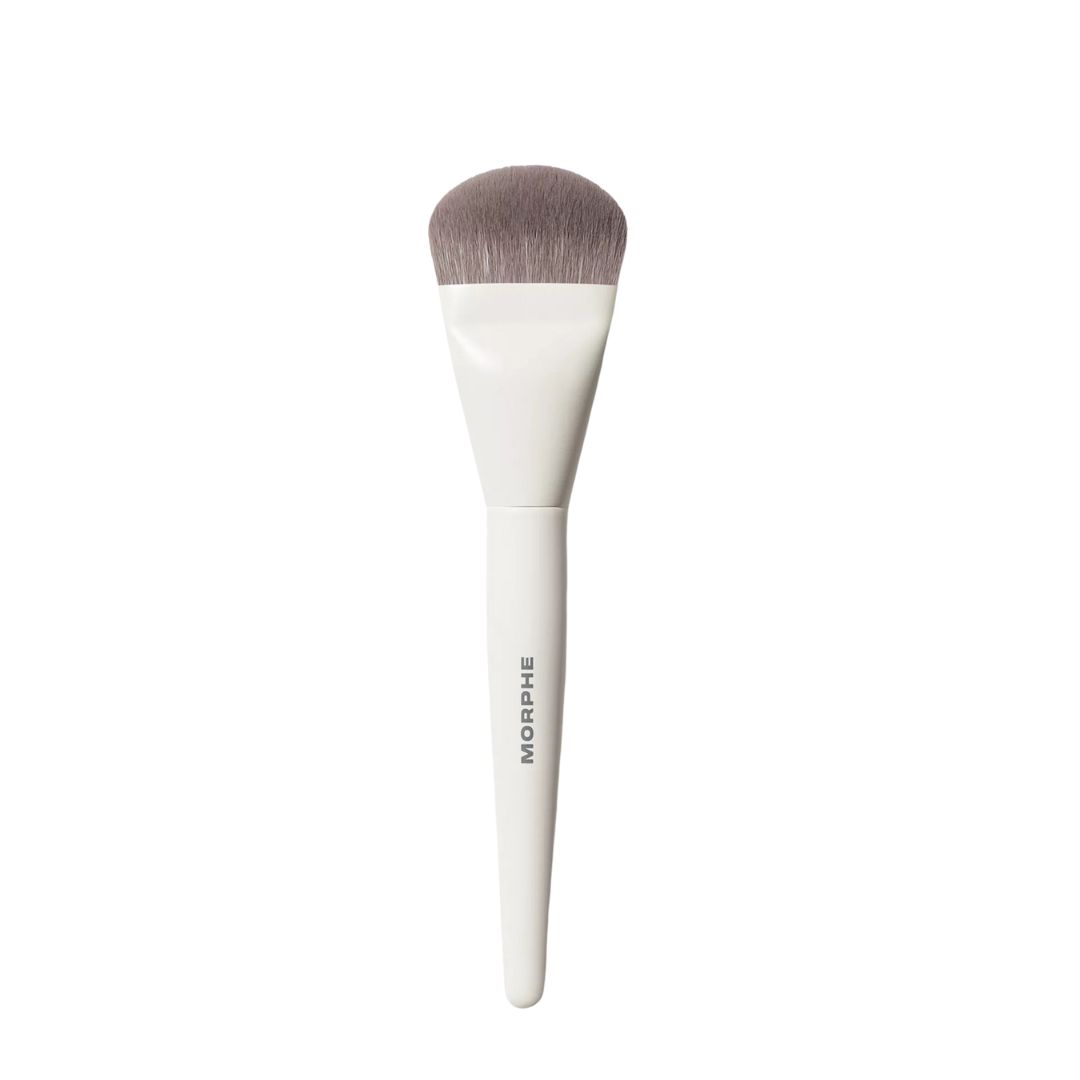
Featuring antibacterial properties, the Morphe M243 brush is, hands down, the best I've ever tried for contouring. Its clever paddle shape and firm tip helps me place my contour exactly where I want it, and its dense bristles help me blend out product with ease, without resulting in any muddiness. I find that it's particularly great whenever I'm using cream or liquid formulas as it tends to pick up the perfect amount of formula.
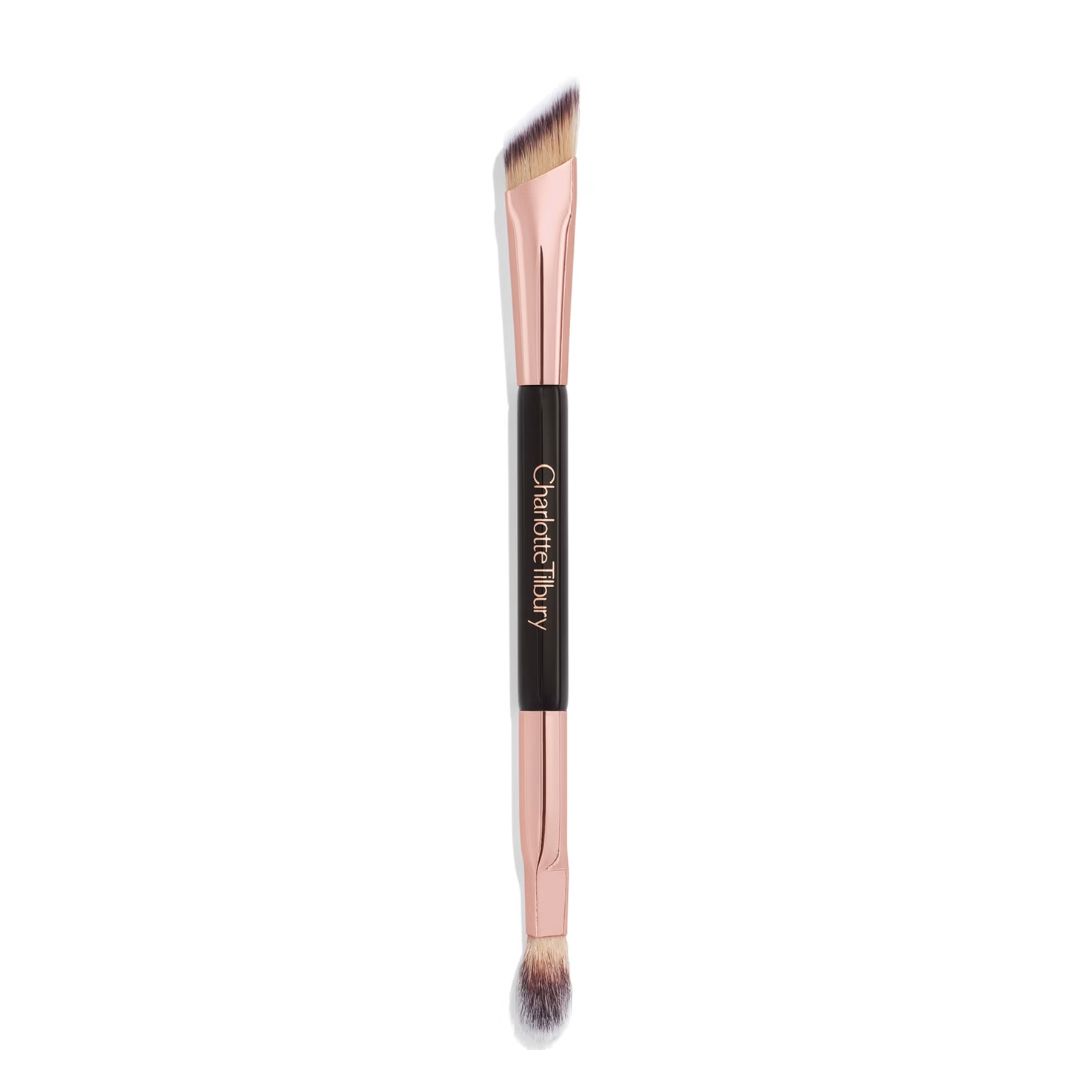
This recent launch from Charlotte Tilbury deserve every bit of praise. It's equipped with a tapered blending end and a dense, angled end, which is great for sculpting and adding definition. Personally, I love using it for nose contour, using the angled end to place the formula, and the fluffier end to blend it out. I've also tried using it for defining my eyeshadow for a cat-eye look by swiping it right underneath my upper lid towards my temples.
Best highlighting brush
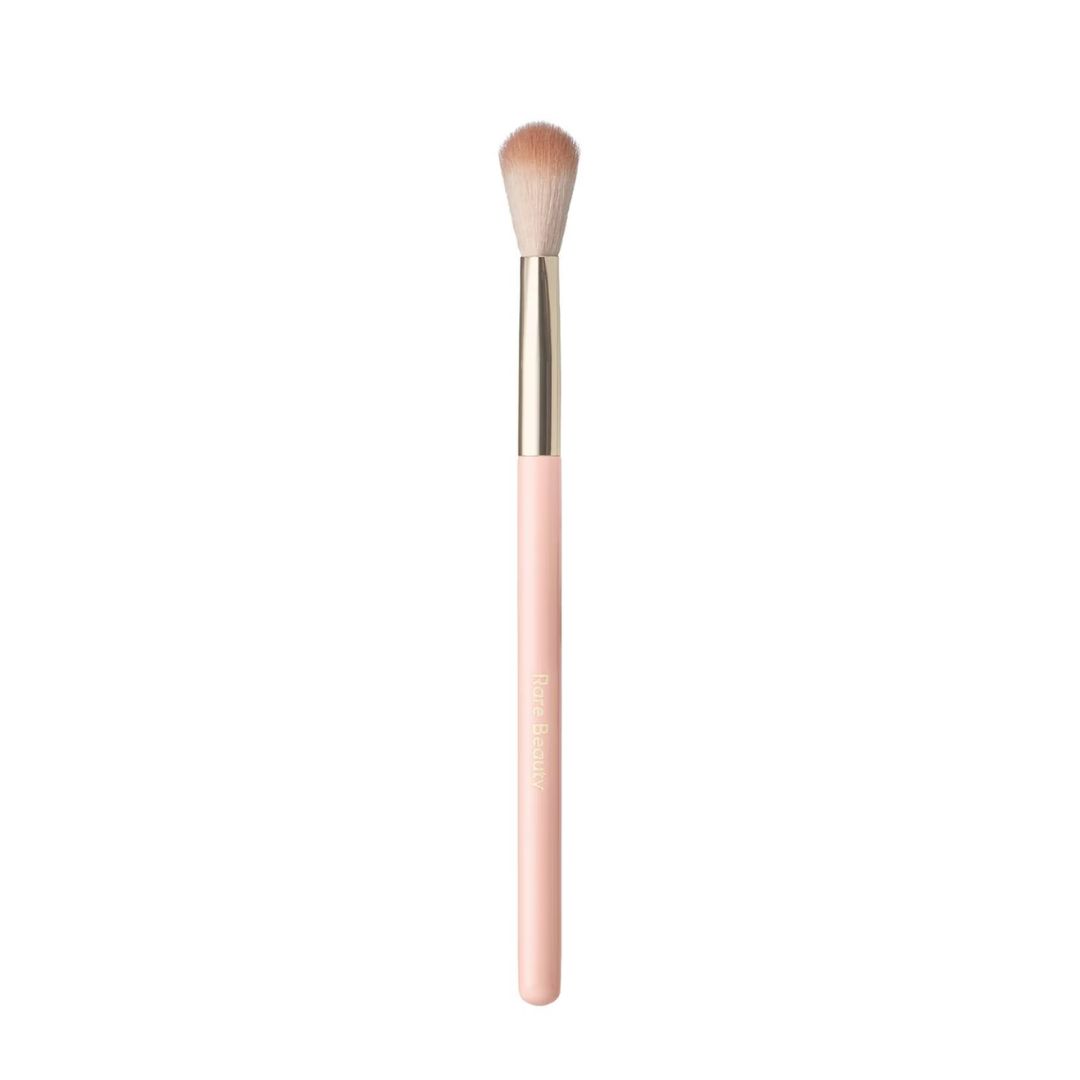
Now, I admit, I don't use highlighter as often as I used to. However, on the rare occasion when I do whip out my shimmery formulas, I always find myself reaching for this clever number from Rare Beauty. Having launched alongside the brand's best-selling Positive Light highlighters, this brush helps gently sweep the formula across the high points of your face with precision, which is ideal for those of us after a "less is more" kind of a finish.
Best powder brush
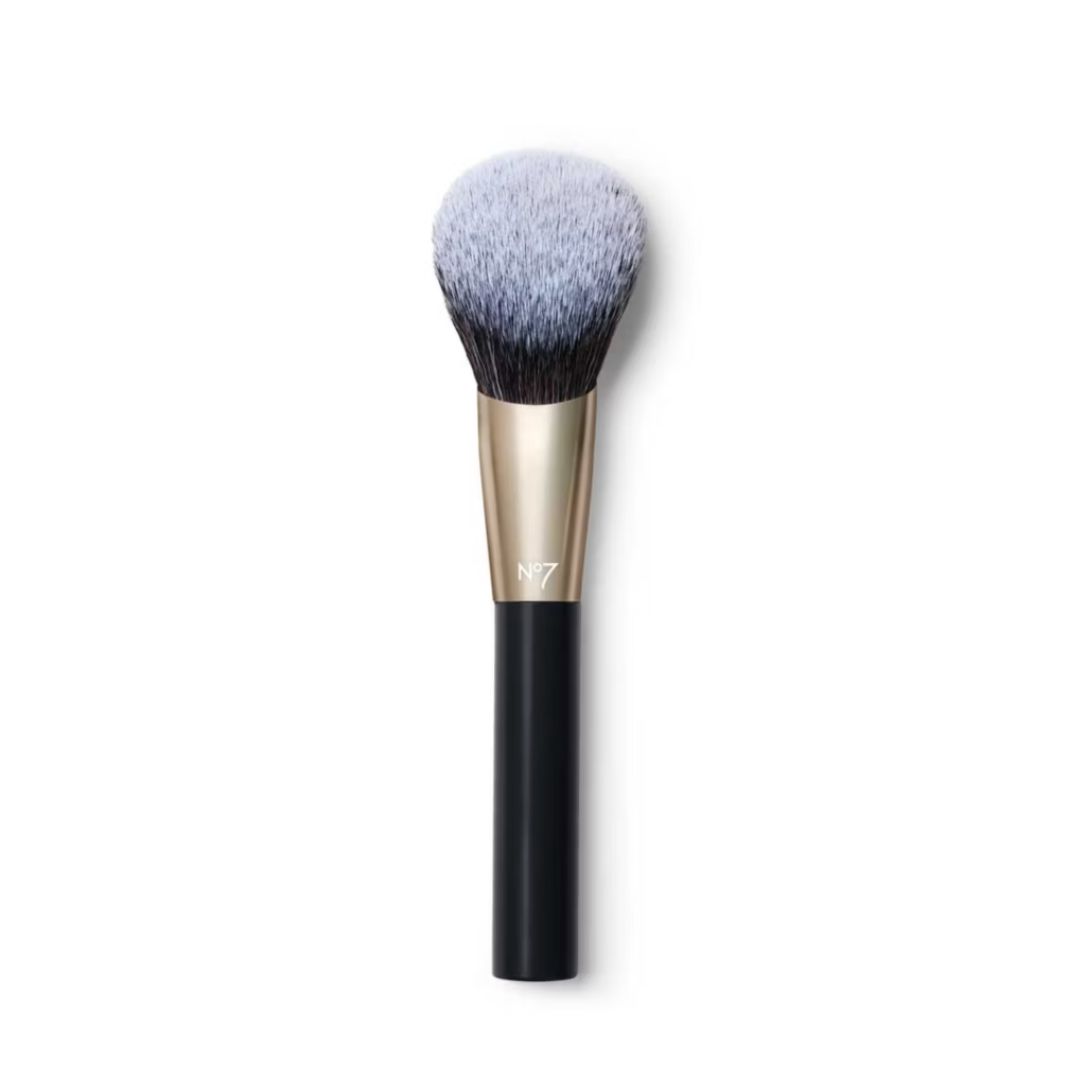
When the newly launched Pro Artist brushes from No7 landed on my desk, I was not all that excited at first. However, having tried each brush first hand, I have to admit, these brushes can easily rival even the most premium options I've tried. The powder brush, in particular, is my favourite out of the bunch. I love its oversized and fluffy design, but above all, I appreciate the slightly angled shape, which fits each part of my face seamlessly, allowing for a light and even dusting of powder.
Best eyeshadow set
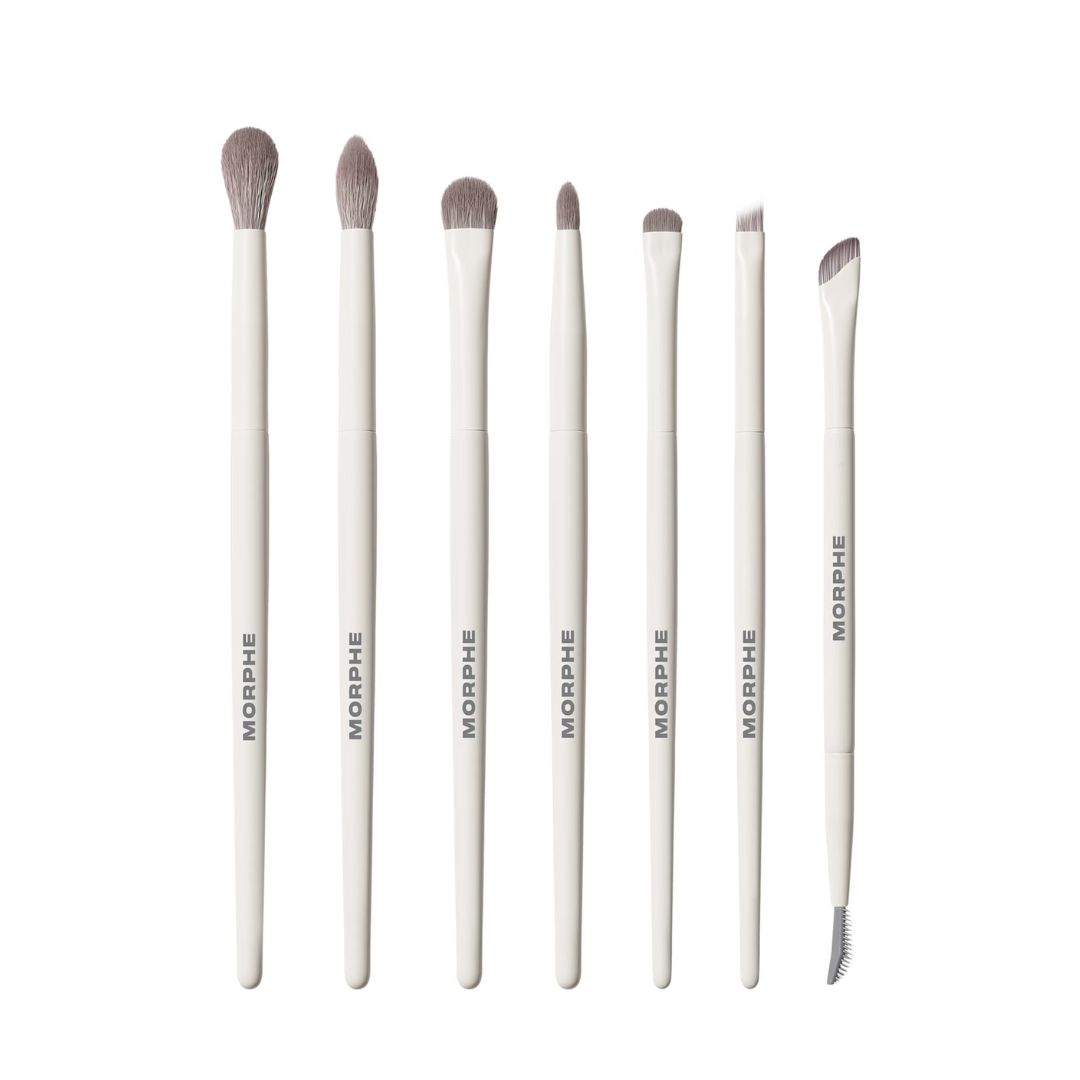
As someone who's a big eyeshadow enthusiast, I found it hard to pinpoint my ultimate favourite, so I thought I'd recommend a quality set of eyeshadow brushes instead, coming from Morphe (which also happens to be one of my favourite makeup brands). I find that this set provides such great value for money, especially given that it would've cost you £62 if you bought each brush individually, but when purchased as a set, you can secure it under £30. Each brush has been crafted with silver ion-infused synthetic bristles with antibacterial properties, designed to achieve any eye makeup look imaginable. With 7 brushes in total, you'll spot everything from a standard tapered blending brush, an angled brush, a smudge brush and everything in-between.
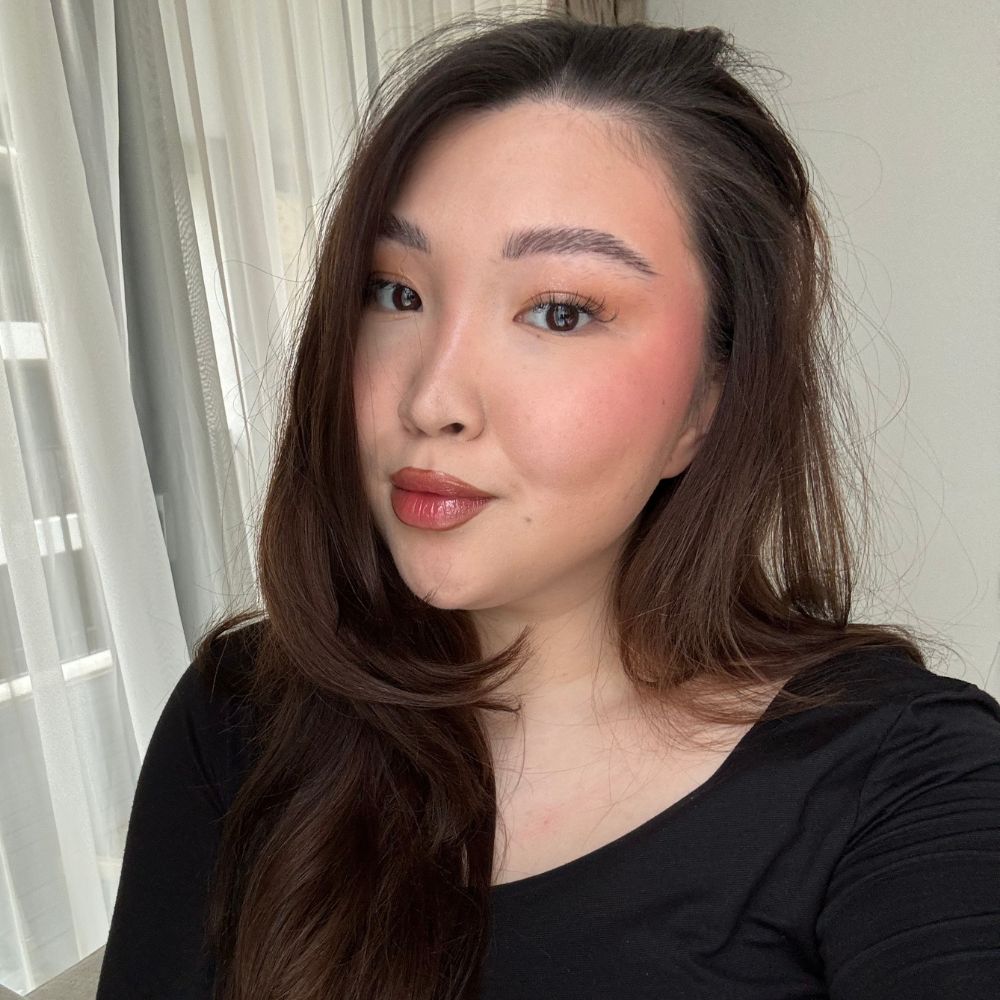
Denise is an award-winning beauty journalist with years of experience in the industry, writing about everything from makeup and skincare to perfume and haircare. Having interviewed celebrities like Khloe Kardashian and Winnie Harlow, Denise's vast writing portfolio also includes a number of product reviews, buying guides, first-person features and deep-dive explainers.